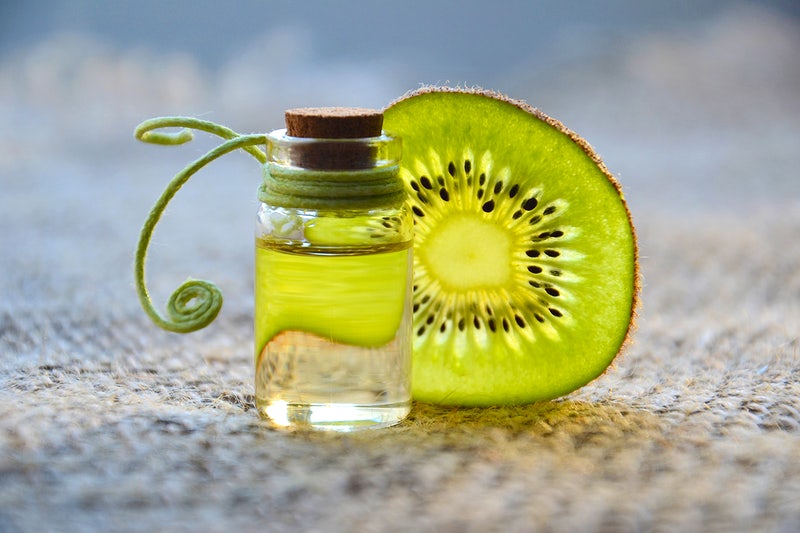
Essential oils are compounds extracted from plant life. The oils seize the plant’s fragrance, flavor, or “essence.” Specific fragrant compounds provide each essential oil with its special essence.
Essential oils are acquired through:
- Cold pressing: This technique works through mechanically squeezing plant material to cause the plant to free up or release its essential juices or oils.
- Water Distillation: This system of extraction passes water or warm steam across the plants, pulling the vital compounds out of the plant
When the aromatic chemicals are extracted, they’re mixed with a carrier oil to create a product that can be used.
How do essential oils work?
Essential oils are extensively used within aromatherapy, where they’re often inhaled. Essential oils should not be swallowed, though, because they can negatively affect your body!
The chemical substances in essential oils could interact with your body. The application of essential oils on the skin causes the absorption of plant chemical materials into the skin. When you inhale the aromas from essential oils, it can stimulate regions of your limbic system. This is a part of our brain that performs a role in feelings and behaviors and long-term memory functions!
Intriguingly, the limbic system is a key component in forming memories and emotions. It can partially explain why familiar smells, like that from an old family home or your first pet’s collar, may trigger reminiscences or feelings associated with those events; it also controls several subconscious physiological capabilities, including breathing rate, heart-attacks and blood pressure.
Health Benefits of Essential Oil.
Essential oils smell great and could bring so many health benefits! Some of its health benefits may include:
- Reducing anxiety
- Restoring energy levels
- Balancing hormones
- Fighting depression
- Insomnia
- Antimicrobial uses
- Reduces Inflammation
It’s no wonder that people are using essential oils more now than ever before! However, it’s important to keep in mind that essential oils are very concentrated. Because of their high concentration, if you don’t use them correctly, they can cause skin irritation. Don’t apply essential oils without diluting them first. They are so potent that the person might experience an allergic reaction and suffer from its livelihood if you do!
If you get essential oil on your skin, it’s important to know how to remove the substance from your body quickly. In this article, we’ll give you some tips on how to get essential oil off your skin.
Check Out Ylang Ylang Essential Oil
Tips to get essential oils off your skin.
- Make use of carrier oil: Diluting your essential oil with a carrier oil (coconut oil, olive oil, etc.) can help remove it from your skin. To apply the carrier oil, simply place a few drops onto a cotton ball or pad and gently wipe it over where it is needed.
- Make use of soap and water: Wash your area with soap and water as you normally would, then rinse it off. The essential oil should come right off without too much residue or problem in getting rid of them completely.”
- Make use of a wet cloth: You can also use a wet cloth to remove the essential oil if you’re not near any sinks; make sure that it’s well-wrenched before wiping over your skin!
- Make use of baby wipes: If you don’t have any other options, use baby wipes to get the essential oil off your skin and make sure that they are fragrance-free so it doesn’t irritate your skin.
Hopefully, one of these methods will work for you! Essential oils provide many benefits, so it’s important to ensure that none of the oil gets on your skin. However, if it does happen, these are some ways to get it off.
Safety measures for using essential oils.
- You should never leave essential oils where children can get their hands on them. If you’re not using an integral dropper bottle, keep it out of reach!
- Essential oils should never be applied directly to the skin around your eyes as they can cause severe pain and inflammation. If you get some in this area, flush them away with clean water immediately!
- If you spill some neat oil on your hands, use cream or vegetable oils to dilute it. Soap will remove the liquid from the skin, and warm water is necessary for rinsing off any residue- but don’t forget that these spills might need another round with soap afterward!
- It is important to note that ingesting any oil should only be undertaken under the supervision of a professional health advisor and never exceed the suggested amount.
- The effects of excess essential oil can be headache-inducing, nausea-causing, and generally uncomfortable. To avoid these side effects, drink lots of water or take frequent breaks from the product to let your body get used to it again.
- Stop using essential oils if you notice any skin rash. Use a different variety, or consult your physician for help!
Precautions for daily usage of Essential Oils
- Always use gloves when bottling essential oils to avoid contact with your skin. When inhaled, neat oil can cause problems in some people’s respiratory systems, so keep it dilute and away from the nose area!
- You must ensure that your house has adequate ventilation.
- Vary the amounts of the essential oils you work with or diffuse daily.
- Hand care is important to prevent painful cracks and sores. Suppose your hands start feeling sensitive after using certain oils. In that case, you may have developed a chemical burn on the skin’s surface from being too close in contact with an irritant like poison ivy or nettles without protection!
- If you experience any pain, swelling, or other severe reaction, seek medical attention immediately.
- Apply a cool compress to the affected area. A cool compress can help soothe any irritation or burning sensation caused by the essential oil.
In conclusion, essential oils are a powerful tool that can be used for many health purposes. However, it is important to take precautions when using them, particularly if applying them directly to the skin. If you experience any adverse reaction, discontinue use and seek medical attention if necessary.
Read More About What Essential Oil Is Good For Anxiety?


